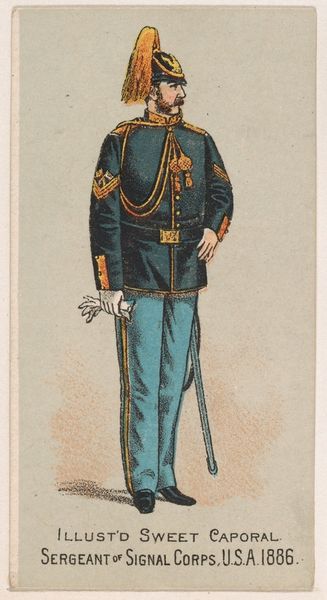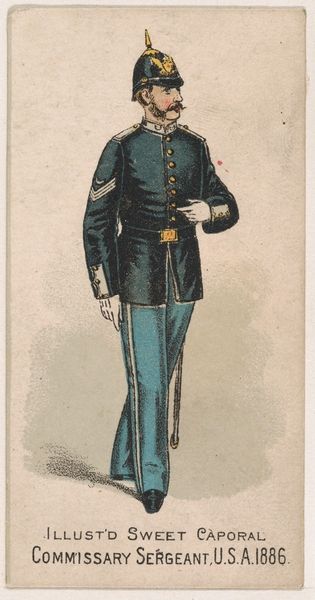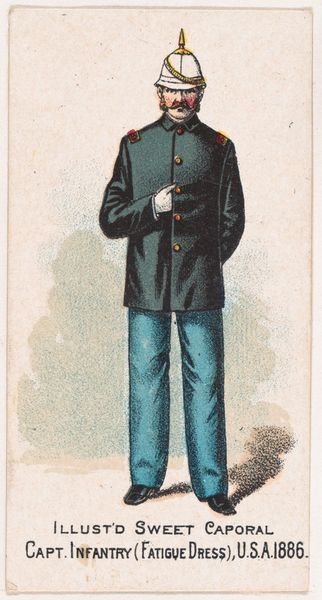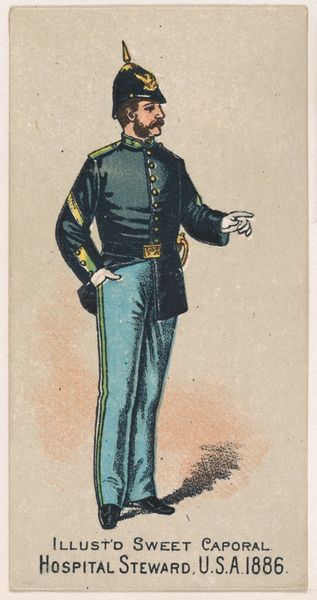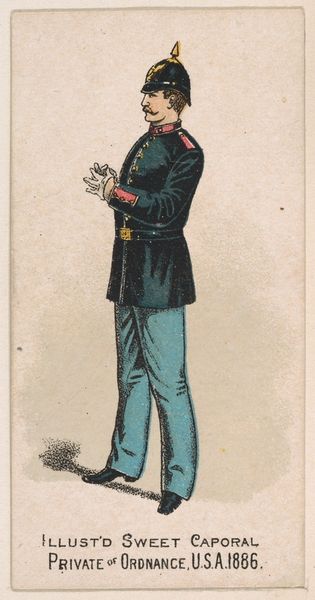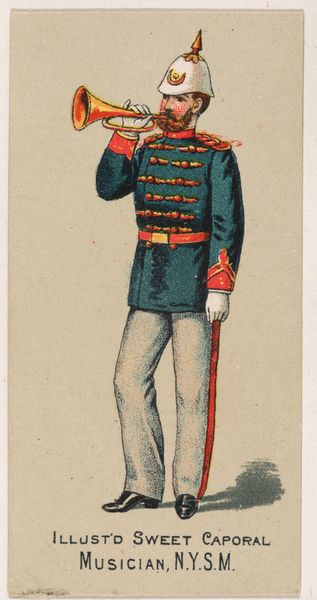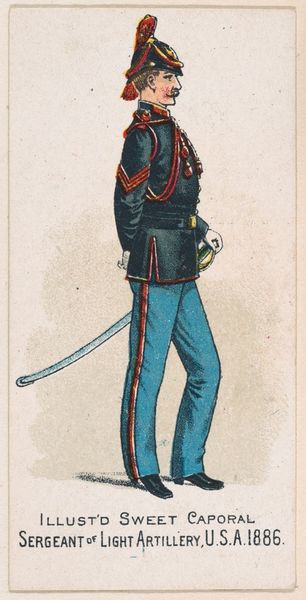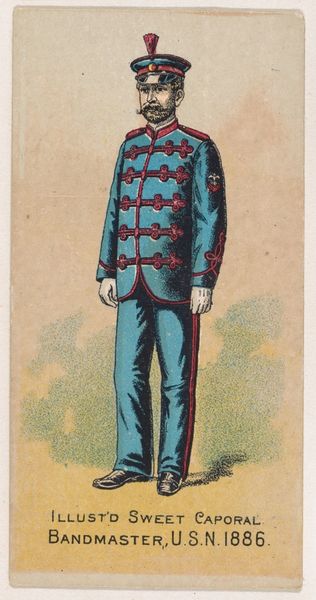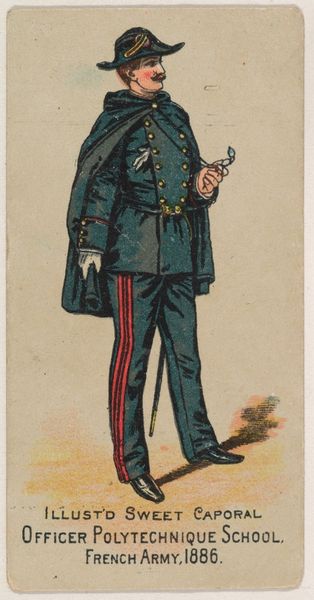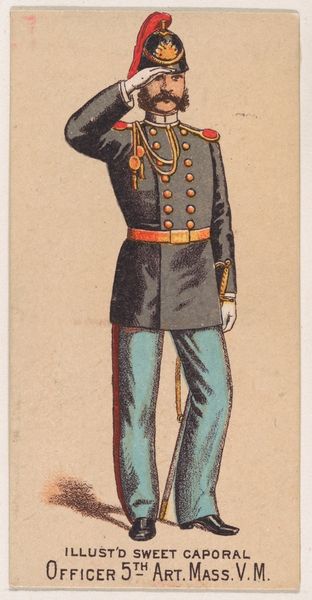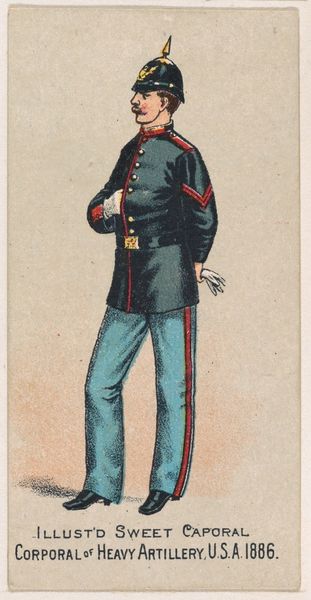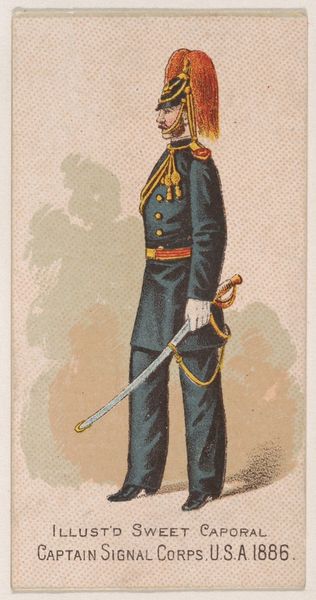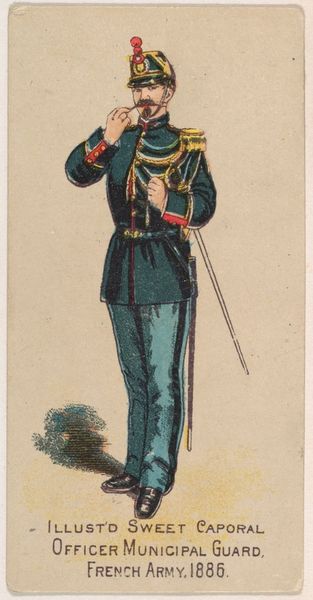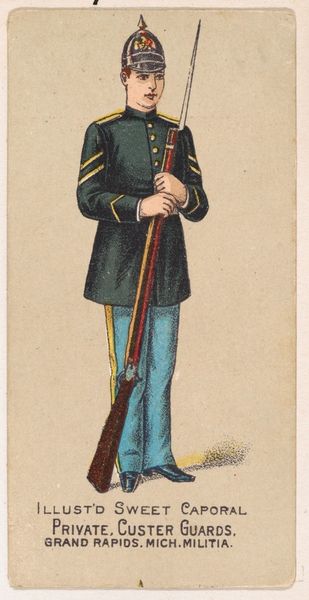
Private, Signal Corps, United States Army, 1886, from the Military Series (N224) issued by Kinney Tobacco Company to promote Sweet Caporal Cigarettes 1888
0:00
0:00
Dimensions: Sheet: 2 3/4 × 1 1/2 in. (7 × 3.8 cm)
Copyright: Public Domain
Curator: This print, entitled "Private, Signal Corps, United States Army, 1886," comes from the Military Series, published in 1888 by the Kinney Tobacco Company. Editor: It's remarkable how a simple tobacco card can evoke such a sense of stiff formality, almost like a puppet standing rigidly to attention. Curator: The image embodies a strong sense of Orientalism, echoing the Ukiyo-e style. It prompts questions regarding cultural appropriation in American advertising of that time and what stereotypes were reinforced through this stylistic choice. Editor: The very act of mass-producing these cards – engravings meant to be collected, traded, even discarded with cigarette packs—highlights the increasing commodification of the military image itself. Consider the contrast: A man in uniform reduced to an advertising tool, meant to sell tobacco. The juxtaposition is startling. Curator: Absolutely. How are ideas of militarism and patriotism marketed? Also, what’s intriguing to me is this flattening of the soldier’s identity. Does the image subtly reinforce the concept of the army as a homogenized entity, erasing individuality for the sake of promoting a specific product and ideology? Editor: It underscores how mass media, even in its nascent form, could mold perceptions. Look at the lines, the colors—rudimentary yet effective in projecting an idea of strength. And what does it mean when that strength is used to sell Sweet Caporal cigarettes? Curator: This work also prompts conversations about class and labor, offering a look at the intersectional representation of a soldier’s image intertwined with consumerism. Editor: I’d add the question of accessibility; these cards made art ubiquitous, disrupting traditional notions of what art *should* be and for whom. It's like early mass art distribution, deeply enmeshed in a cycle of production, consumption, and waste. Curator: A crucial point to remember: understanding the history of an image like this is vital in unpacking the historical context and socio-political implications it presents. Editor: Ultimately, a small card but it packs a potent reflection on labor, mass production, and image construction.
Comments
No comments
Be the first to comment and join the conversation on the ultimate creative platform.
